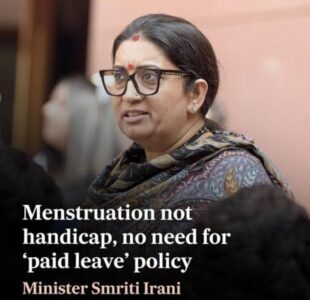Nawazuddin Siddiqui’s comments about mental health
Nawazuddin Siddiqui’s comments about mental health, specifically his assertion that depression is an urban issue and doesn’t affect rural India or pavement dwellers, have generated widespread criticism. Mental health is a complex and multifaceted issue that can affect individuals regardless of their geographical location, economic status, or background.
It is crucial to approach mental health discussions with sensitivity, empathy, and accurate information. Making sweeping generalizations or dismissing the experiences of certain groups of people can perpetuate stigma and undermine efforts to address mental health challenges.
In reality, mental health issues are prevalent in both urban and rural areas, affecting individuals from all walks of life. Factors such as social and economic conditions, access to resources, and cultural influences can contribute to the manifestation and treatment of mental illnesses.
Promoting awareness, understanding, and support for mental health is essential to ensure the well-being of individuals across all communities. It is vital to encourage open dialogue, education, and access to mental health services for everyone, regardless of their background or location.
When an actor makes a comment suggesting that depression is only experienced by people in urban areas and not rural areas, it can have a negative impact on the youth in several ways:
• Validating Misconceptions: The actor’s statement may reinforce existing misconceptions or stigma surrounding mental health in rural areas. It can perpetuate the belief that mental health issues are not prevalent or relevant outside of urban settings. This can discourage individuals in rural areas from seeking help or support for their own mental health struggles.
• Ignoring Realities: Depression and other mental health issues are not limited to any specific geographic area. They can affect people regardless of their location. By dismissing the experiences of individuals in rural areas, the actor may trivialize their struggles and create a sense of isolation among those who are already dealing with mental health issues.
• Discouraging Help-Seeking: The comment can discourage young people in rural areas from seeking mental health support. If they believe that depression is not a legitimate concern in their community, they may be less likely to reach out for help, leading to unaddressed mental health issues and potential negative consequences on their well-being.
• Reinforcing Disparities: Mental health disparities already exist between urban and rural areas due to various factors such as limited access to mental health services, higher rates of poverty, and social isolation. By further marginalizing mental health concerns in rural areas, the actor’s comment can perpetuate these disparities and hinder efforts to improve mental health services and support systems in rural communities.
• Impact on Self-Perception: Young individuals in rural areas may internalize the actor’s comment, leading to a negative impact on their self-perception. They may feel invalidated, overlooked, or even ashamed about their own mental health struggles. This can contribute to a sense of hopelessness and further isolation, potentially exacerbating their existing mental health issues.
It is important for public figures, including actors, to be mindful of the impact their words can have, especially when discussing sensitive topics like mental health. Promoting awareness, understanding, and inclusivity regarding mental health issues in all communities can help foster a supportive environment where individuals feel comfortable seeking help and finding the support they need.


Leave A Reply